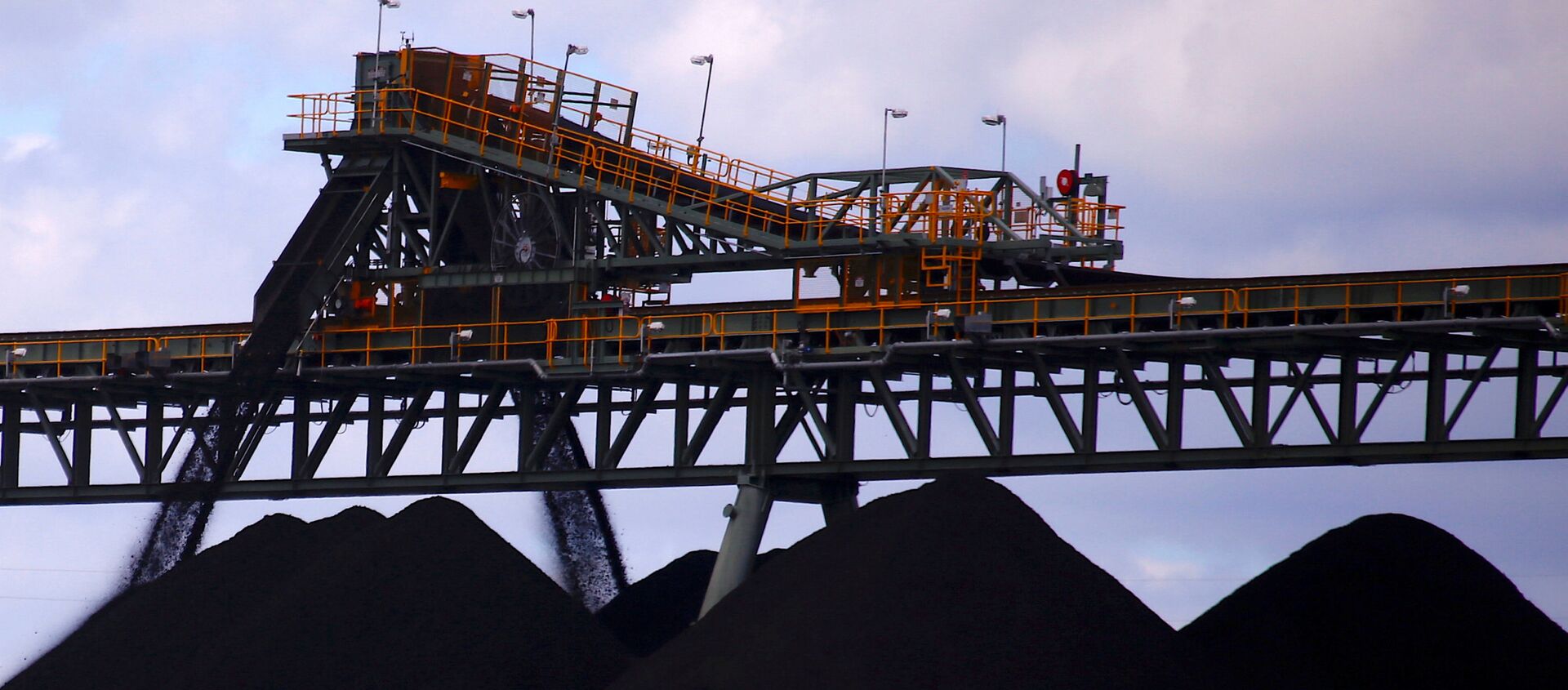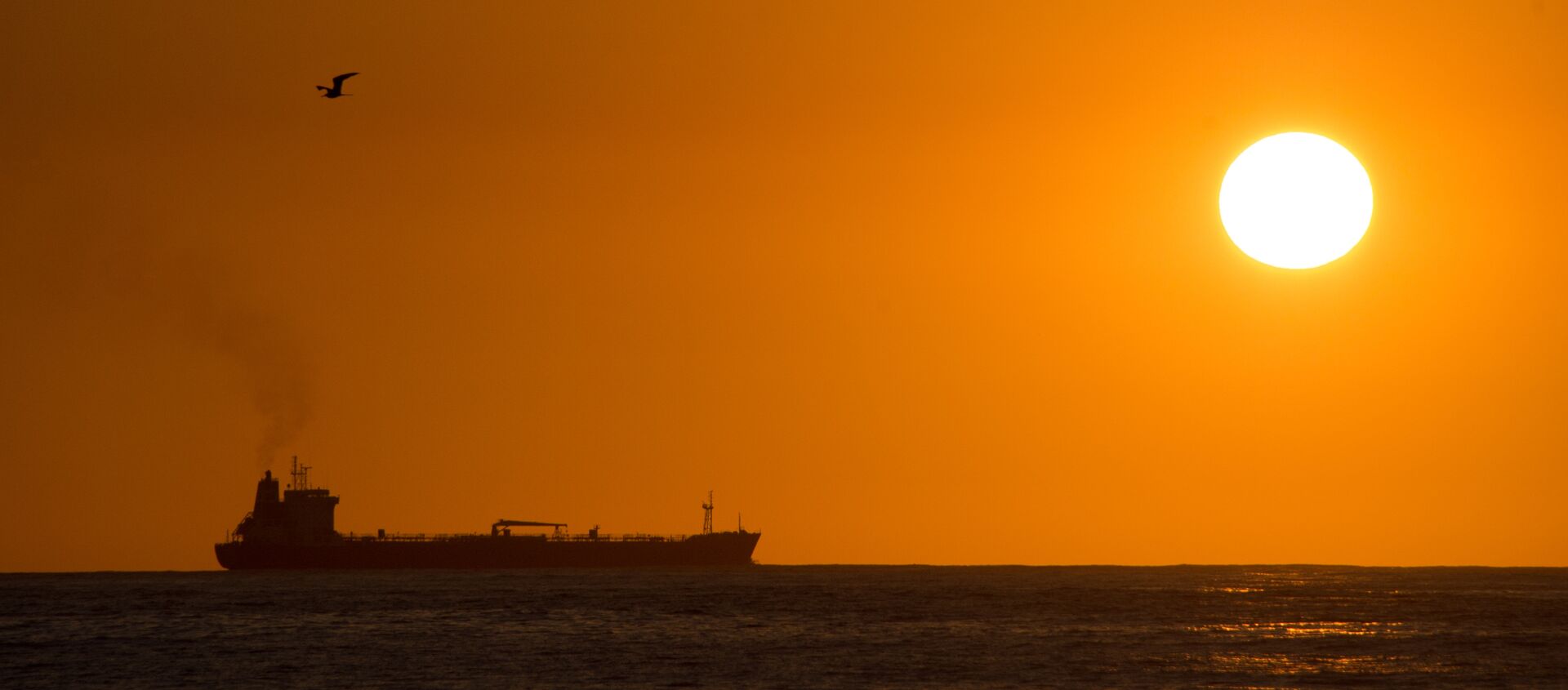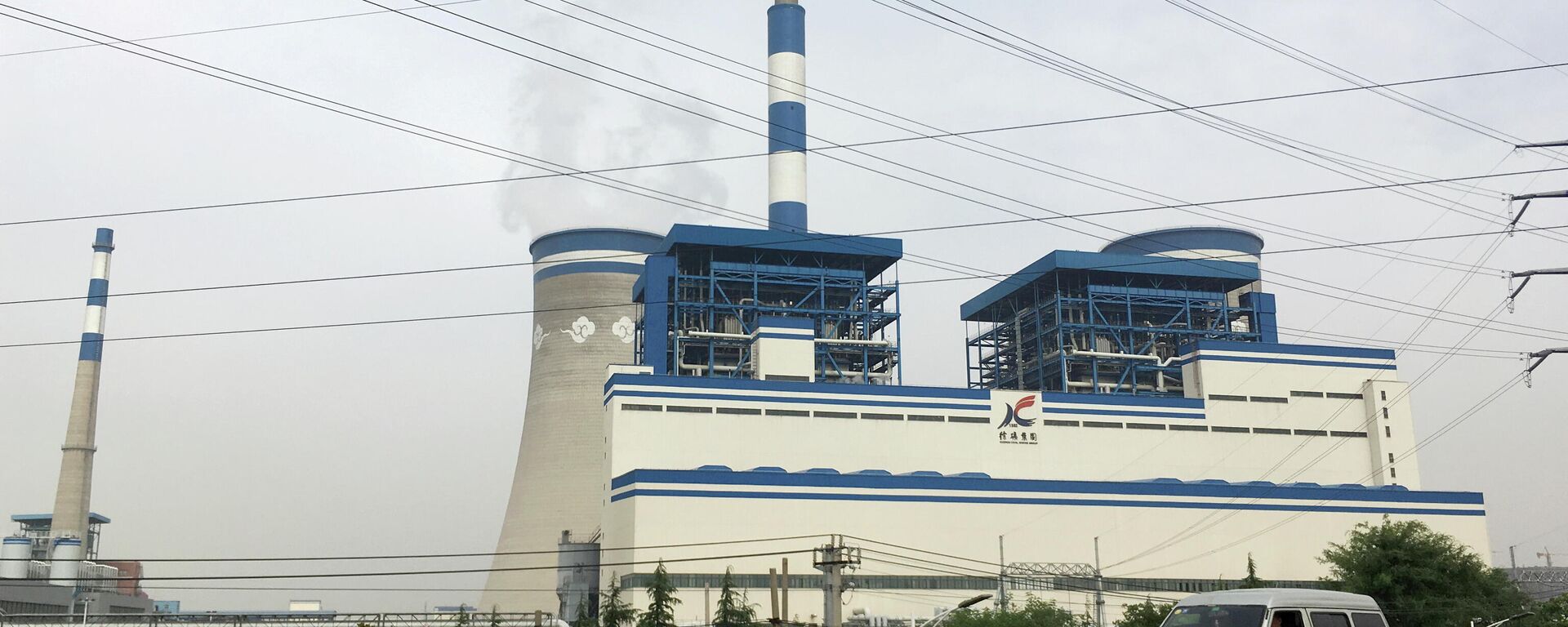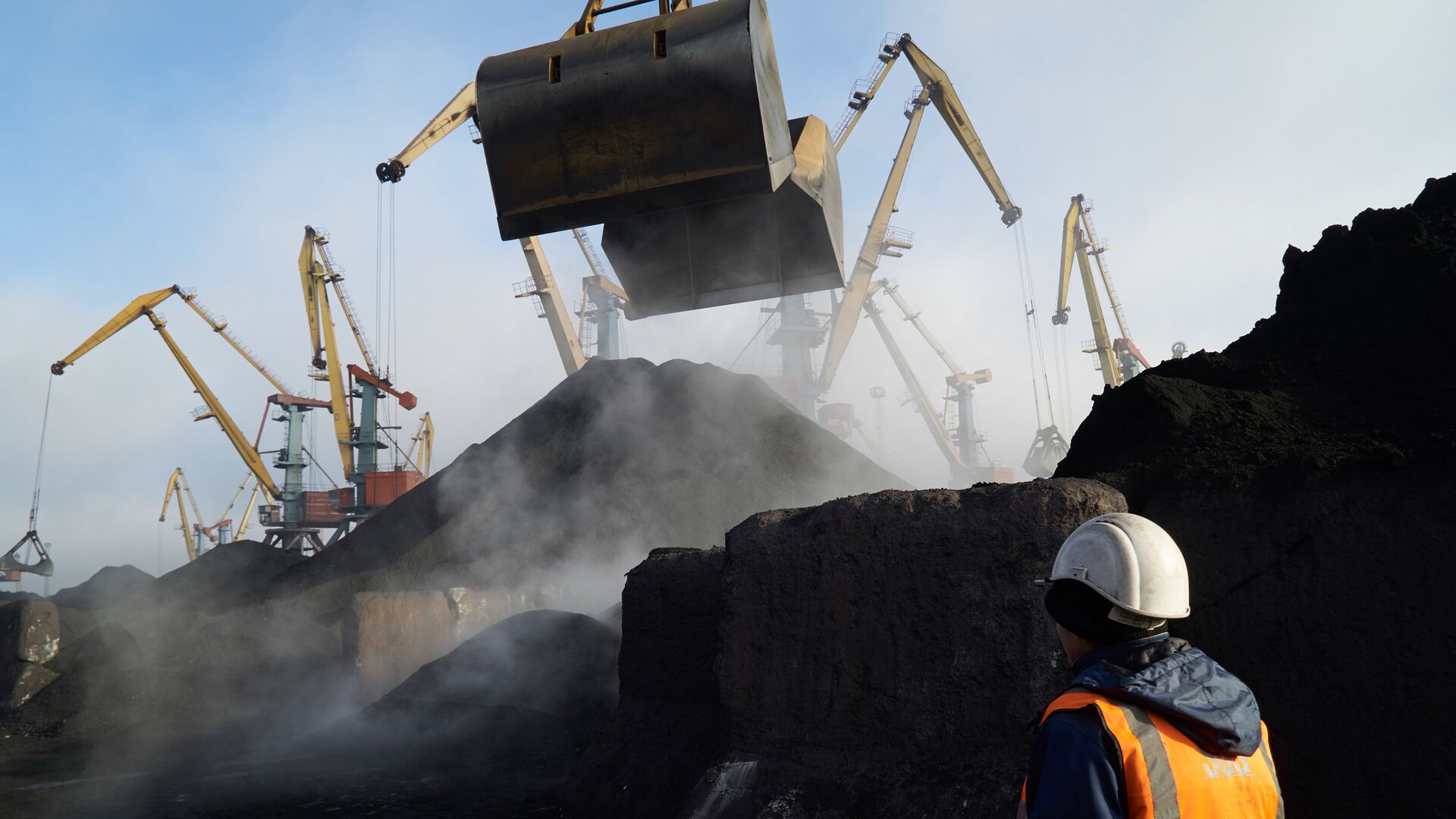https://sputnikglobe.com/20211005/india-a-short-term-beneficiary-as-china-continues-to-boycott-australian-coal-analyst-1089678857.html
India a ‘Short-Term’ Beneficiary as China Continues to Boycott Australian Coal, Analyst Says
India a ‘Short-Term’ Beneficiary as China Continues to Boycott Australian Coal, Analyst Says
Sputnik International
India and China are among the world’s biggest coal producers but both Asian powerhouses are still forced to import coal due to massive demand for their power... 05.10.2021, Sputnik International
2021-10-05T14:16+0000
2021-10-05T14:16+0000
2021-10-05T14:16+0000
asia
china
australia
coal
https://cdn1.img.sputnikglobe.com/img/105071/60/1050716028_0:0:3067:1725_1920x0_80_0_0_69d2831ef68058689d7ec48b7227e4ae.jpg
The trade war between Australia – the world’s second biggest coal exporter and largest producer of high-grade coal – and China – the biggest global coal importer – is benefitting India; for the first time in the latter's history, the country has become a net exporter of metallurgical coking coal, which is used in manufacturing iron and steel.In August, India exported 221,000 tonnes of met coke while importing nearly 167,000 tonnes, according to data from government and industry sources put together by Iman Resources FZ LLC, a United Arab Emirates (UAE)-based firm tracking the global trade in coal, coke, and minerals. In total, India imported 15.15 million metric tonnes (MMT) of coal and coke in August.Vasudev Pamnani, general manager (retail sales) at Iman Resources FZ LLC, told Sputnik that the reason Indian coke manufacturers are now exporting the product is because they are able to procure coal at very competitive prices from Australia.Pamnani, however, cautions that India can only expect to be a “short-term beneficiary” of the Australia-China trade war, as the Asian country doesn’t possess the capacity to “absorb” all of the coking coal imported from Australia.“India could absorb the thermal coal imports from Australian exporters as they seek to find other markets to make up for Beijing’s boycott of the coal from down under,” he says. "But when it comes to cooking coal, the trend of being a net exporter will not continue beyond two to three months,” reckons Pamnani.India's Power Ministry said this week that the country's thermal coal production capacity slowed in September due to heavy rains across the country, which has affected power generation.According to the Central Electricity Authority (CEA), 80 percent of India’s coal-powered electricity plants had less than a week’s stock of thermal coal left as of 29 September, forcing them to look for options overseas. Pamnani notes that coal remains the biggest contributor in India’s energy mix, contributing about 57 percent.Met coke is a direct product derived from coking coal after it is processed to remove moisture to make it fit for use in steel industry furnaces. Met coke is mainly used to power the iron and steel industry, as per the World Coal Institute.As compared to met coking coal, thermal steam coal is used for power generation and in the cement industry, among others. Thermal and met coking coal are vital for the survival of the eight core sectors of the Indian economy including steel, cement, and electricity.Bloomberg reported on 1 October that Beijing has asked its coal importers to dispose of the stockpiled Australian coal throughout the country.Citing Indian industry sources, the publication reported that Indian businesses, including electricity and steel manufacturers, bought nearly two million tonnes of Australian coal from China at prices cheaper than $15 a tonne.Australia-China Trade WarThe boycott of Australian coal in China constitutes another chapter in the ongoing trade war between the two nations, triggered after Australian Prime Minister Scott Morrison urged the international community probe the origins of COVID-19 last December. The demand prompted tariffs and boycotts by Beijing on several Australian imports ranging from coal to lobsters."Maybe also the ordinary people will say why should we drink Australian wine or to eat Australian beef?" Beijing’s Ambassador Jingye Cheng said in a recent interview with the Australian Financial Review.
https://sputnikglobe.com/20201013/trade-war-heats-up-as-china-threatens-to-cut-off-coal-imports-from-australia-1080759259.html
https://sputnikglobe.com/20201216/indian-sailors-stranded-in-chinese-waters-amid-australia-china-trade-war-seek-govt-intervention-1081476002.html
https://sputnikglobe.com/20210922/no-more-coal-fired-plants-built-by-china-abroad-xi-jinping-announces-1089294254.html
china
australia
Sputnik International
feedback@sputniknews.com
+74956456601
MIA „Rosiya Segodnya“
2021
News
en_EN
Sputnik International
feedback@sputniknews.com
+74956456601
MIA „Rosiya Segodnya“
Sputnik International
feedback@sputniknews.com
+74956456601
MIA „Rosiya Segodnya“
china, australia, coal
India a ‘Short-Term’ Beneficiary as China Continues to Boycott Australian Coal, Analyst Says
India and China are among the world’s biggest coal producers but both Asian powerhouses are still forced to import coal due to massive demand for their power generation, steel, and cement. India and China are among the top steel manufacturing nations globally.
The
trade war between Australia – the world’s second biggest coal exporter and largest producer of high-grade coal – and China – the biggest global coal importer – is benefitting India; for the first time in the latter's history, the country has become a net exporter of metallurgical coking coal, which is used in manufacturing iron and steel.
In August, India exported 221,000 tonnes of met coke while importing nearly 167,000 tonnes, according to data from government and industry sources put together by Iman Resources FZ LLC, a United Arab Emirates (UAE)-based firm tracking the global trade in coal, coke, and minerals.
In total, India imported 15.15 million metric tonnes (MMT) of coal and coke in August.

13 October 2020, 16:28 GMT
Vasudev Pamnani, general manager (retail sales) at Iman Resources FZ LLC, told Sputnik that the reason Indian coke manufacturers are now exporting the product is because they are able to procure coal at very competitive prices from Australia.
“China, on the other hand, is forced to pay a premium to procure coal from countries such as the US, Russia and Canada, as its government has banned the use of Australian coal," he said.
Pamnani, however, cautions that India can only expect to be a “short-term beneficiary” of the Australia-China trade war, as the Asian country doesn’t possess the capacity to “absorb” all of the coking coal imported from Australia.
“India could absorb the thermal coal imports from Australian exporters as they seek to find other markets to make up for Beijing’s boycott of the coal from down under,” he says.
"But when it comes to cooking coal, the trend of being a net exporter will not continue beyond two to three months,” reckons Pamnani.
“Even Australia will ultimately be affected by Beijing’s decision to boycott Australian coal in domestic usage, since they will be forced to cut down on their production costs and even production because of the inability to find buyers for the entire output,” the commodity analyst says.
India's Power Ministry said this week that the country's thermal coal production capacity slowed in September due to heavy rains across the country, which has affected power generation.
According to the Central Electricity Authority (CEA), 80 percent of India’s coal-powered electricity plants had less than a week’s stock of thermal coal left as of 29 September, forcing them to look for options overseas.
Pamnani notes that coal remains the biggest contributor in India’s energy mix, contributing about 57 percent.
Met coke is a direct product derived from coking coal after it is processed to remove moisture to make it fit for use in steel industry furnaces. Met coke is mainly used to power the iron and steel industry, as per the World Coal Institute.
As compared to met coking coal, thermal steam coal is used for power generation and in the cement industry, among others.
Thermal and met coking coal are vital for the survival of the eight core sectors of the Indian economy including steel, cement, and electricity.

16 December 2020, 10:28 GMT
Bloomberg reported on 1 October that Beijing has asked its coal importers to dispose of the stockpiled Australian coal throughout the country.
Citing Indian industry sources, the publication reported that Indian businesses, including electricity and steel manufacturers, bought nearly two million tonnes of Australian coal from China at prices cheaper than $15 a tonne.
Australia-China Trade War
The boycott of Australian coal in China constitutes another chapter in the ongoing trade war between the two nations, triggered after Australian Prime Minister Scott Morrison urged the international community probe the origins of COVID-19 last December.
The demand prompted tariffs and boycotts by Beijing on several Australian imports ranging from coal to lobsters.

22 September 2021, 08:23 GMT
"Maybe also the ordinary people will say why should we drink Australian wine or to eat Australian beef?" Beijing’s Ambassador Jingye Cheng said in a recent interview with the Australian Financial Review.







